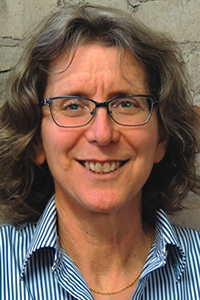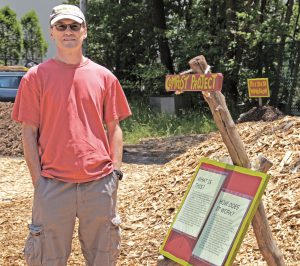
Nora Goldstein
BioCycle June 2018
We lost David Buckel, a compassionate, brilliant composting champion, in mid-April. He died of self-immolation in Prospect Park in Brooklyn, New York, taking his own life to draw attention to the harsh realities of climate change. “My early death by fossil fuel,” he wrote in a suicide letter, “reflects what we are doing to ourselves.”
We met David in early 2013. By that point in his career, he had retired as an attorney and was managing a community composting operation at the Red Hook Community Farm in Brooklyn, and serving as a consultant to develop more community composting sites in New York City. David was extremely articulate about many subjects, including rat prevention. What stuck with me most was how he described composting as a “gateway drug to the broader world of recycling” in the following passage from a BioCycle Commentary written by David in 2013, “Why Big And Small Organics Recyclers Need Each Other:”
“Community composters can increasingly reach a significant scale of materials processing. In New York City, several sites are able to manage 4 tons of food waste at a time, or over 200 tons a year, with odors and rodents controlled. They affiliate with urban farms or otherwise dedicate themselves to a neighborhood’s greening projects like school food gardens, street trees and parks. They rely on urban volunteers who enjoy outdoor manual labor that greens their community. Many volunteers get hooked on composting, the gateway drug to the broader world of recycling, because composting is one of the few volunteer jobs that gets people directly involved in creating value with recyclables. And they become vigilant about contaminants because they are picking stuff out of tons of material with their own hands.”
These volunteers, people from all walks of life, young to old, enjoy community composting because “they get directly involved in creating value with recyclables.” And are vigilant about contaminants! Community composting volunteers know, first-hand, the connection between quality and value. David nurtured those kinds of connections. And so do many of his community composting colleagues and champions around the country (and likely beyond).
Quality and value — actually the lack thereof — are front and center today in the world of materials recycling. The woes are caused by contamination in collected recyclables. In last month’s Editorial, “Aspirational and Essential,” I noted that a lot of the blame is being pinned on households wanting to recycle everything that comes in the door. That theme has continued in the popular and trade press, and even from the National Recycling Coalition (which used the term, “wishful recycling” in a press release on the “crisis”).
How about we ramp down the blame game, and ramp up the solutions game. Let’s figure out how to model what David Buckel discovered upon engaging volunteers to participate in community composting. Let’s reboot our local recycling programs to create the connections between our actions and their impact. Clean commodities equal quality raw materials and economic opportunities to grow sustainable communities.
David Buckel found a way to engage people to become a force for positive change. He’s left us big shoes to fill, but fill them we will. Rest in peace, our dear friend, and thank you.
Additonal BioCycle content featuring David Buckel:
Why New York City Community Composters Are Critical To City-Wide Implementation










